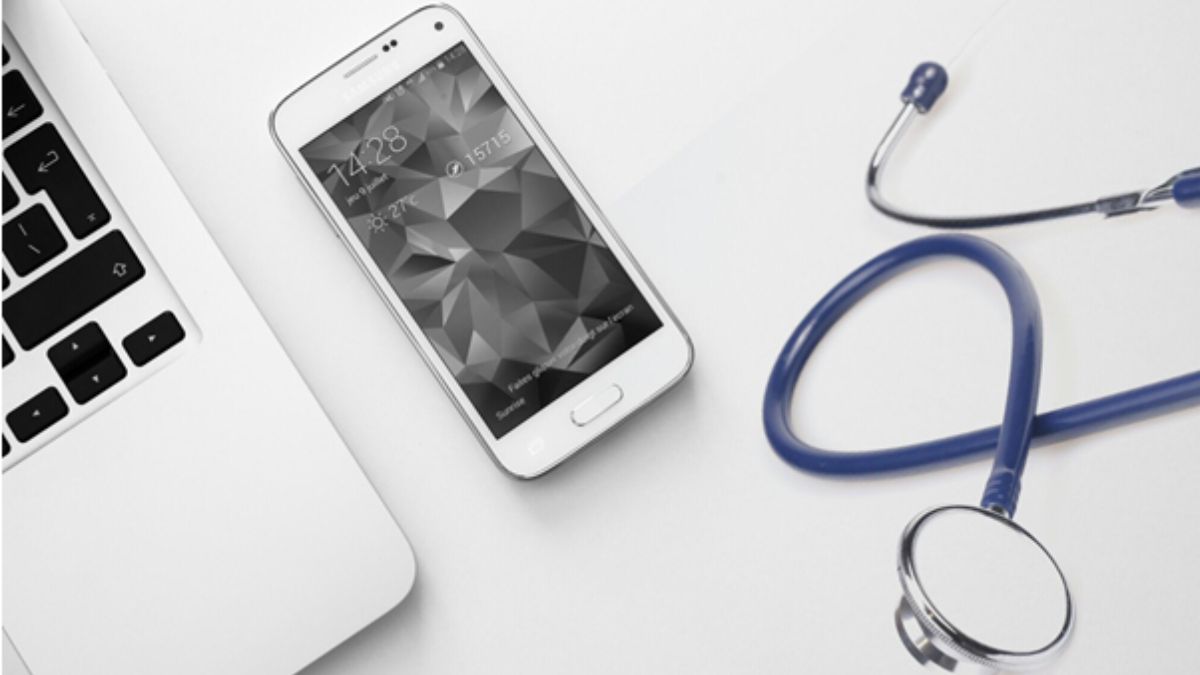HEALTH
How Healthcare Software Companies are Innovating Patient Care

Healthcare is evolving, and technology plays a big role. Healthcare software companies and healthcare IT providers are leading the way. How are they improving the patient experience?
From digital records to virtual visits, patient care is changing. Patients now receive faster diagnoses, easier access, and personalized treatments. Technology in healthcare helps doctors make better decisions.
Patients also feel more connected with their health journey. Let’s explore.
Enhanced Patient Data Access
Access to health data is now easier for both patients and doctors. Patients can check their health records online through secure platforms. Doctors can find information, improving decision-making during treatments.
This access helps prevent medical errors, as health history is available. Patients feel more empowered when they understand their data.
Secure access to information builds trust and transparency in care. When health data is easy to view, communication is smoother for everyone.
Real-Time Health Monitoring
Real-time monitoring keeps doctors updated on patient conditions. Wearables and mobile devices track important health metrics, like heart rate. This information alerts doctors to any sudden changes in health.
With quick data access, doctors can act before a situation worsens. Real-time monitoring provides patients with confidence in their care. They feel secure, knowing their health is always being tracked.
It also lets healthcare providers manage chronic conditions more effectively. This proactive approach leads to better health outcomes.
Efficient Data Sharing With Interoperability
Data interoperability allows seamless sharing across healthcare systems. The benefits of implementing healthcare interoperability platform are significant. It enables doctors to view a patient’s history from different sources.
This reduces the risk of errors from incomplete information. Patients benefit when all their healthcare providers are on the same page.
Less paperwork means faster, more efficient medical processes. Interoperability helps create a unified, connected system for better care. Doctors, patients, and facilities all enjoy seamless data flow.
Improved Patient Communication Tools
Patient-doctor communication is more accessible with new digital tools. Virtual consultations let patients connect with doctors from anywhere. Patients can use messaging tools to ask questions or get updates.
These communication options create a smoother healthcare experience for everyone. Patients no longer need to wait for in-person visits to get answers. Online portals let patients view test results and medical notes.
By simplifying communication, healthcare software companies are making care more responsive. This leads to faster solutions and stronger patient-doctor relationships.
Streamlined Appointment Scheduling
Scheduling appointments has become simpler with online platforms. Patients can now book visits at their convenience, day or night. This reduces wait times and improves access to healthcare services.
Patients don’t need to call the clinic, as everything is digital. Reminders can also be automated, reducing the chance of missed appointments.
Efficient scheduling saves time for patients and providers. The simplified process improves patient satisfaction with healthcare. Easy scheduling is a simple change but offers huge benefits.
Learn How Healthcare Software Companies Are Innovating Patient Care
Healthcare software companies are redefining patient care through technology. Digital health platforms offer faster, easier access to healthcare services.
By using these tools, doctors make better, quicker decisions. Patients enjoy personalized, continuous health monitoring and support. As technology grows, patient care becomes even more efficient.
The future of healthcare is bright with digital health platforms. Healthcare software companies and healthcare IT providers are transforming healthcare.
Did you find this article helpful? If so, check out the rest of our site for more informative content.
HEALTH
Helpful Tips for Those Suffering With Chronic Pain

Living with chronic pain can be a crippling and stressful experience that affects all facets of your life, including your mental and physical health. Regaining control over your pain is crucial, regardless of whether you have fibromyalgia, arthritis, chronic back pain, or any ailment that causes you discomfort.
Understanding Your Pain and Its Causes
Understanding your pain and its underlying causes is the first step toward properly treating chronic pain. Numerous things, such as trauma, inflammation, nerve damage, or underlying medical disorders, can cause chronic pain. Consider the location, degree, duration, and any triggers or mitigating variables for your pain as you take some time to evaluate your symptoms. To monitor your symptoms and spot any trends or triggers that could be aggravating your pain, keep a pain diary. Understanding the underlying causes of your pain will enable you to collaborate with medical specialists to create a customized treatment plan that takes into account your unique requirements and concerns.
Exploring Treatment Options and Therapies
Investigate different therapy and treatment options that can help reduce your symptoms and enhance your quality of life as soon as you have a better knowledge of your pain and its underlying causes. Treatment options can include prescription or over-the-counter drugs, physical therapy, chiropractic care, acupuncture, massage therapy, or nerve blocks, depending on the kind and intensity of your pain. Furthermore, by encouraging relaxation, lowering stress, and enhancing general well-being, complementary and alternative treatments, including yoga, tai chi, meditation, and mindfulness-based stress reduction approaches, can provide further relief from chronic pain.
Incorporating Lifestyle Modifications for Pain Management
Lifestyle changes can be quite helpful in controlling chronic pain and enhancing your general well-being, in addition to medical therapies and treatments. Make self-care routines that support both physical and mental well-being a priority, such as consistent exercise, a balanced diet, enough sleep, and stress reduction. Walking, swimming, or cycling are examples of low-impact workouts that can enhance cardiovascular health, flexibility, and strength without increasing the chance of injury or worsening discomfort. To promote optimum nutrition and lower inflammation, keep a well-balanced diet full of fruits, vegetables, whole grains, lean meats, and healthy fats. Use stress-reduction methods to ease your mind and release tension, which can aggravate pain sensations. Some of these methods include progressive muscle relaxation, deep breathing, and guided imagery.
Building a Support Network and Seeking Professional Help
It might be lonely to live with chronic pain, but you don’t have to go through this path by yourself. Creating a network of friends, family, and medical professionals who can relate to your experiences can be very helpful in terms of both practical support and emotional support. Seek support, empathy, and company from your loved ones, and don’t be afraid to ask for assistance when required with everyday duties or obligations. Consider joining online forums or support groups for people with chronic pain as well. These spaces allow you to interact with others who have experienced similar things, share resources and information, and provide encouragement and support to one another.
Going to a Clinic for Specialized Care
Consider obtaining specialist care at a pain management clinic if you’ve tried a variety of therapies and interventions but are still unable to find relief from chronic pain. Pain management clinics are specialized medical establishments manned by medical specialists with expertise in the diagnosis and treatment of persistent pain disorders, so it’s important to find a Chicago headache clinic or one in your area depending on what type of pain you are experiencing. These clinics provide thorough assessments, individualized treatment programs made to meet the specific requirements of each patient, and diagnostic testing. Medication management, interventional techniques, physical therapy, psychiatric counseling, and complementary and alternative treatments are a few possible treatment choices. Furthermore, access to multidisciplinary care teams—which include pain experts, physical therapists, psychiatrists, and nutritionists—who work together to address the intricate and multidimensional nature of chronic pain is often made possible by pain management clinics.
Conclusion
Although managing chronic pain can be difficult, it’s important to keep in mind that there are helpful treatment choices and tactics available to assist you in finding relief and enhancing your quality of life. You’re not alone. In your quest for pain treatment, keep in mind to be persistent and patient, and don’t be afraid to ask for assistance when you need it. You can experience relief from chronic pain and lead a more active, fulfilling life without having to worry about being in pain all the time with commitment and assistance.
HEALTH
From Headaches to Back Pain: The Versatile Benefits of Chiropractic Adjustments

Did you know that about 22 million Americans visit chiropractors annually?
Chiropractic care has become popular over the years. This is due to its effectiveness in treating a wide range of health issues. This includes headaches, neck pain, back pain, and joint problems.
It involves making adjustments to the spine to improve health and alleviate pain. But the benefits of chiropractic adjustments go far beyond just pain relief.
In this article, we will explore the versatile benefits of chiropractic care. Read on to learn more.
Improved Nervous System Function
The nervous system is responsible for controlling every cell and organ in our body. Misalignments in the spine can disrupt the communication between the brain and the body. This leads to a variety of health issues.
Chiropractic adjustments help to realign the spine. This improves the nervous system function and promotes overall wellness. It can also strengthen the body’s ability to fight off illness and disease.
Better Posture
Poor posture can cause a lot of strain on the spine. This leads to back pain and other health problems.
Chiropractic adjustments correct misalignments in the spine, resulting in better posture. This can also prevent future injuries and improve athletic performance.
Increased Range of Motion
Restricted movement and stiffness are common symptoms of joint issues. This can limit our ability to perform daily tasks and activities.
Chiropractors can help to increase the range of motion in joints. They use gentle techniques to mobilize the joints and reduce pain. This results in improved flexibility and mobility.
Headache Relief
Headaches are a common health issue that can be caused by tension in the neck and back. Chiropractic adjustments can help to relieve this tension, providing relief from headaches. It also helps to address the root cause of the pain rather than just masking it with medication.
Neck pain can also contribute to tension headaches. Chiropractic help for neck pain can provide relief and help to prevent future occurrences of headaches.
Improved Sleep
Many people struggle with sleep issues such as insomnia or poor sleep quality. Chiropractic methods can help to improve sleep by reducing pain and tension in the body. It can also promote relaxation and reduce stress levels, resulting in better sleep.
Reduction in Osteoarthritis Symptoms
Chiropractic care is beneficial in managing symptoms of osteoarthritis. By maintaining proper alignment and mobility, chiropractic adjustments can decrease the wear and tear on joints. This can reduce pain and stiffness associated with osteoarthritis.
It can also slow down the progression of the disease. This makes chiropractic care a valuable addition to the treatment plan for those suffering from osteoarthritis.
Relief from Pregnancy-Related Discomfort
Many pregnant women experience back pain, neck pain, and joint discomfort due to the physical changes that occur during pregnancy. Chiropractic care is a safe and effective way to relieve these discomforts.
Adjustments can help to balance the pelvis, reduce spinal nerve stress, and enhance overall comfort. It can also help to position the baby properly for birth.
Exploring the Benefits of Chiropractic Adjustments
The benefits of chiropractic adjustments go beyond just treating pain and discomfort. It can improve overall health and wellness by addressing the root cause of health issues.
With its versatility, chiropractic adjustments can benefit people of all ages and backgrounds. Consider scheduling a chiropractor appointment to experience these versatile benefits for yourself. Your body will thank you for it!
Did you find this blog post helpful? If so, feel free to explore more of our blog!
FOOD & DRINKS
Nutrition and Erectile Health: Superfoods for Better Performance

In the quest for overall health and vitality, nutrition plays a pivotal role. While many discussions focus on physical fitness and disease prevention, the impact of nutrition on specific aspects of health, such as erectile health, is often overlooked. By incorporating superfoods into your diet, you can nourish your body and support better performance in various aspects of life, including those moments of intimacy.
Introduction
Nutrition is the foundation of good health, influencing everything from energy levels to immune function. When it comes to erectile health, the foods you eat can have a significant impact on blood flow, hormone balance, and overall cardiovascular health. In this article, we’ll explore some superfoods that can support better performance in various aspects of life, including moments of intimacy.
The Power of Superfoods
Superfoods are nutrient-dense foods that offer a wide range of health benefits. From boosting immunity to supporting heart health, these foods are packed with vitamins, minerals, antioxidants, and phytochemicals that nourish the body and promote overall well-being.
While medications like Cenforce 150 and Fildena 150 can offer temporary relief for performance issues, true vitality comes from within. By prioritizing nutrition and incorporating superfoods into your diet, you can support overall health and well-being, including erectile health. So, next time you’re looking to enhance your performance, consider reaching for a plate of nutrient-packed superfoods. Your body will thank you for it.
Superfoods for Erectile Health
- Dark Leafy Greens: Spinach, kale, and Swiss chard are rich in nitrates, compounds that help improve blood flow by dilating blood vessels. This enhanced circulation can benefit erectile function by promoting healthy blood flow to the genitals.
- Berries: Blueberries, strawberries, and raspberries are loaded with antioxidants, which help protect blood vessels from damage caused by oxidative stress. By reducing inflammation and supporting vascular health, berries can contribute to better erectile function.
- Nuts and Seeds: Almonds, walnuts, and pumpkin seeds are excellent sources of arginine, an amino acid that plays a role in the production of nitric oxide. Nitric oxide helps relax blood vessels, allowing for increased blood flow to the genitals and improved erectile function.
- Fatty Fish: Salmon, mackerel, and trout are rich in omega-3 fatty acids, which have anti-inflammatory properties and support cardiovascular health. By reducing inflammation and improving blood flow, omega-3 fatty acids may help enhance erectile function.
Incorporating Superfoods Into Your Diet
Adding superfoods to your diet doesn’t have to be complicated. Here are some simple ways to incorporate these nutrient-packed foods into your daily meals:
- Smoothies: Blend leafy greens, berries, nuts, and seeds into a delicious smoothie for a nutrient-packed breakfast or snack.
- Salads: Add dark leafy greens, berries, and nuts to your salads for a burst of flavor and nutrition.
- Trail Mix: Create your own trail mix with nuts, seeds, and dried berries for a satisfying and nutritious snack.
- Grilled Fish: Enjoy fatty fish like salmon or trout grilled with a side of leafy greens for a heart-healthy meal.
Conclusion
This article highlights the importance of nutrition in supporting erectile health and suggests incorporating superfoods into the diet as a natural approach to promoting better performance. Additionally, it mentions medications like Cenforce 200 and Fildena as part of a broader discussion on wellness.

 BUSINESS1 year ago
BUSINESS1 year agoExploring the Benefits of Commercial Printing

 HOME IMPROVEMENT12 months ago
HOME IMPROVEMENT12 months agoThe Do’s and Don’ts of Renting Rubbish Bins for Your Next Renovation

 BUSINESS12 months ago
BUSINESS12 months agoBrand Visibility with Imprint Now and Custom Poly Mailers

 HEALTH8 months ago
HEALTH8 months agoThe Surprising Benefits of Weight Loss Peptides You Need to Know

 TECHNOLOGY10 months ago
TECHNOLOGY10 months agoDizipal 608: The Tech Revolution Redefined

 HEALTH8 months ago
HEALTH8 months agoYour Guide to Shedding Pounds in the Digital Age

 HOME IMPROVEMENT8 months ago
HOME IMPROVEMENT8 months agoGet Your Grout to Gleam With These Easy-To-Follow Tips

 HEALTH11 months ago
HEALTH11 months agoHappy Hippo Kratom Reviews: Read Before You Buy!












